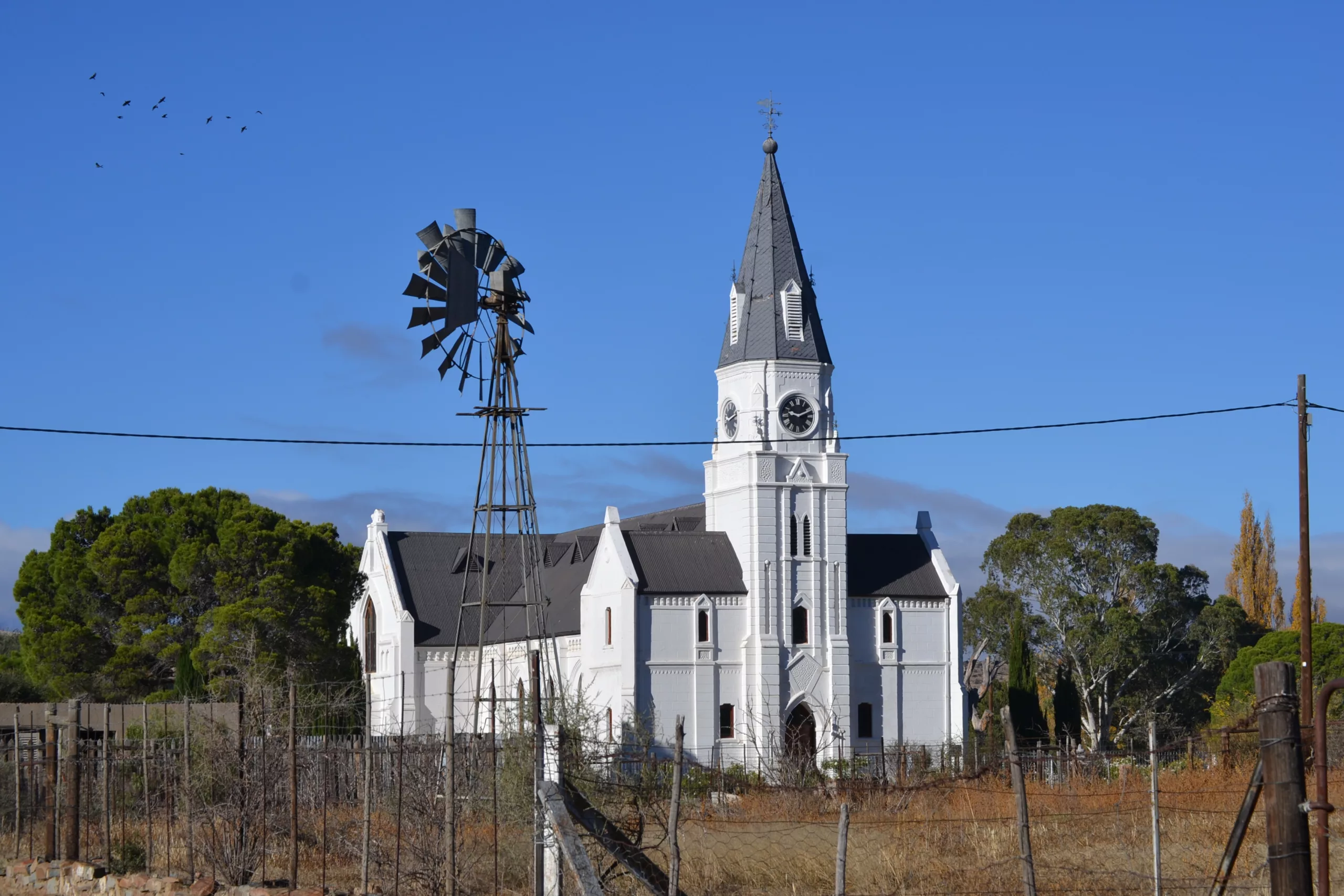History of Nieu-Bethesda
The village of Nieu-Bethesda is located at the foot of the Sneeuberg about 50 kilometers north of Graaff Reinet.
It was founded in 1875 as a church town, like many other Karoo villages, and attained municipal status in 1886. The name is of biblical origin (John 5:2–4) and means “place of flowing water”.
The town of Nieu-Bethesda was established in 1875 on the farm Uitkyk, which belonged to Barend Jacobus Pienaar. The location was seen as ideal as it was located within the well-watered valley of the Gat River and surrounding Sneeuberge. The land was purchased for and on behalf of the Dutch Reformed Church council for the price of £4000 and the deed of purchase was dated 8 February 1875. The new parish was named Nu Bethesda by the Reverend Charles Murray in honor of the Bethesda in the Bible, which was a place where Jesus healed the sick. His naming of the new village was incorrectly noted as Nieuw Bethesda and was later changed into the Afrikaans version of Nieu-Bethesda.
The church found the village hard to run and cede administrative rights to a newly established municipality in 1880. They retained ownership of their properties in the village which meant that residents were obliged to pay taxes to both the church and the municipality. The imposing church building was consecrated in 1905
The town of Nieu-Bethesda quickly grew into a thriving agricultural community. The area’s fertile soil and abundant water supply made it ideal for farming, and the town soon became a major center for the production of wheat, barley, and other crops.
In the late 20th century, Nieu-Bethesda became a popular destination for artists and writers. The town’s isolation and its unique beauty appealed to these creative types, and many of them settled in Nieu-Bethesda for extended periods of time. Among the most notable artists and writers who lived in Nieu-Bethesda were Helen Martins and Athol Fugard.
Helen Martins spent the latter years of her life creating the sculptures and paintings you find in the Owl House today, .
Athol Fugard is a South African playwright and novelist who is best known for his plays about apartheid. He moved to Nieu-Bethesda in 1967 and wrote several of his plays there, including “The Road to Mecca” and “Master Harold and the Boys”.
Today, Nieu-Bethesda is a small but thriving town. It is a popular destination for tourists, artists, and writers, and it is known for its unique beauty and its rich history.


